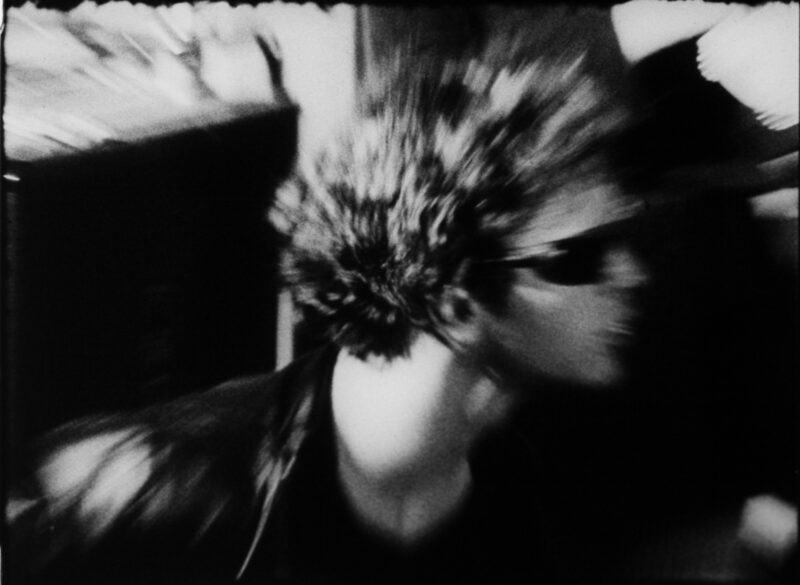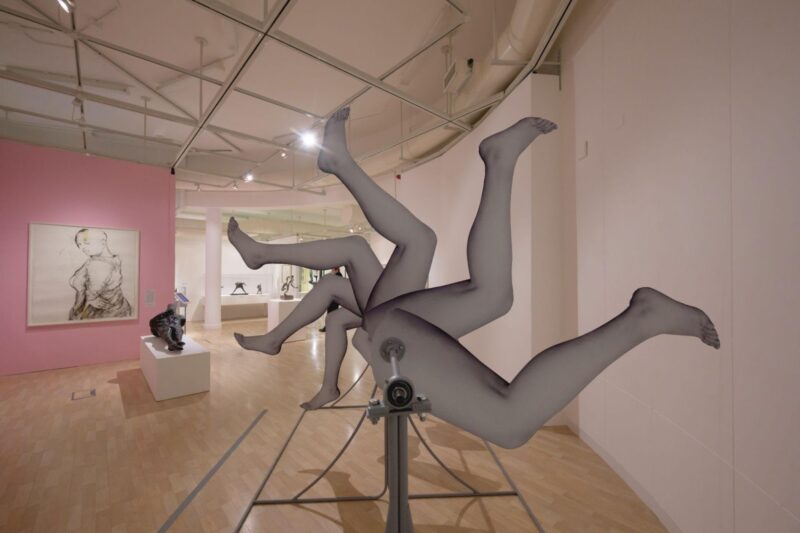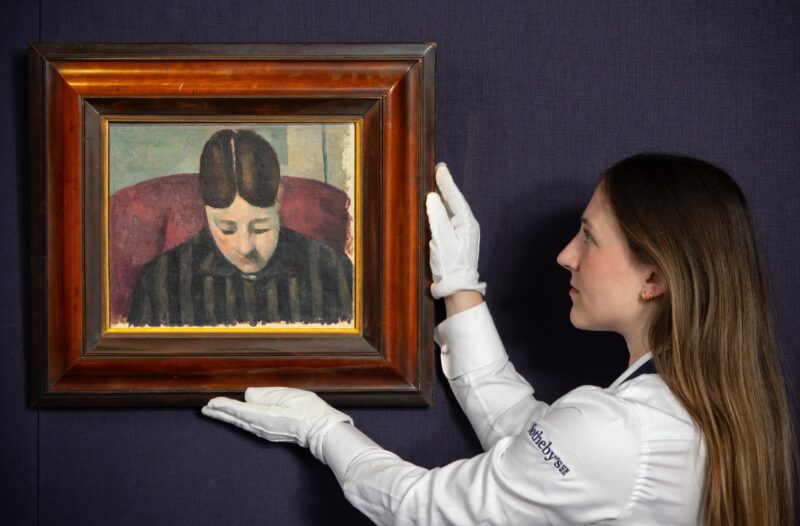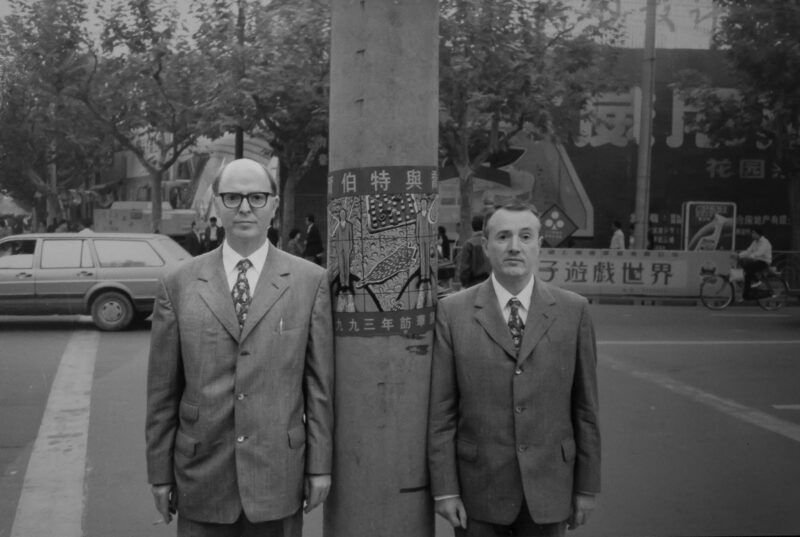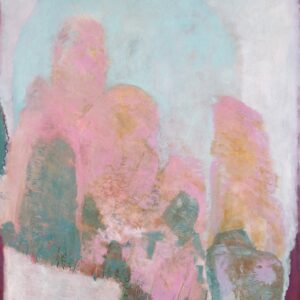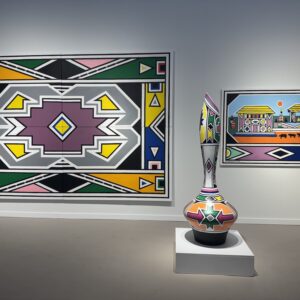Rebecca Tooby-Desmond, Phillips’ Specialist, Head of Sale and Auctioneer, Editions has picked 7 artworks to look out for at the upcoming Picasso and Evening & Day Editions Auctions in London on 6th & 7th June.
Pablo Picasso Tête de chèvre en profil (Goat’s Head in Profile)
Lot 14
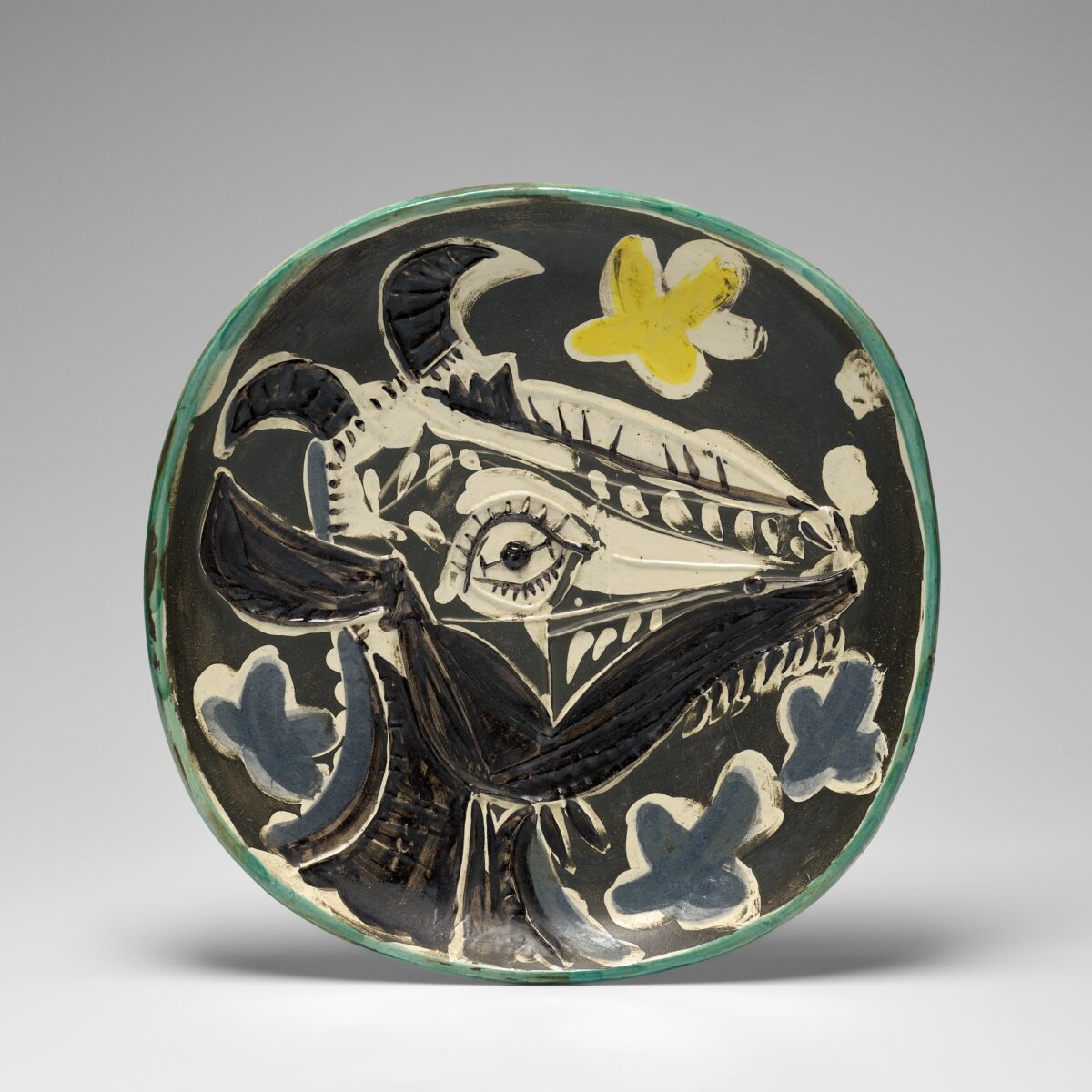
Estimate £10,000 – 15,000
Picasso had a deep affection for animals, particularly goats. He owned several pet goats, including Esmerelda, a gift from his wife, Jacqueline Roque. Esmerelda lived inside their home and Picasso joked about keeping her close at night because she was afraid of the dark. His fondness for goats is evident in his art, notably in Tête de chèvre en profil (1952), a ceramic dish depicting a goat’s head surrounded by flowers. Goats frequently appeared in his work, from detailed representations to playful abstractions, reflecting his fascination with antiquity and mythology. Unlike his menacing Minotaur, Picasso’s goats were cheerful and colourful, embodying his intimate bond with these animals.
Phillips Pablo Picasso: Paper and Clay London Auction 6th June 2024
Bridget Riley, Untitled (Oval Image) (S. 3, T. & G. 4), 1964 lot 102
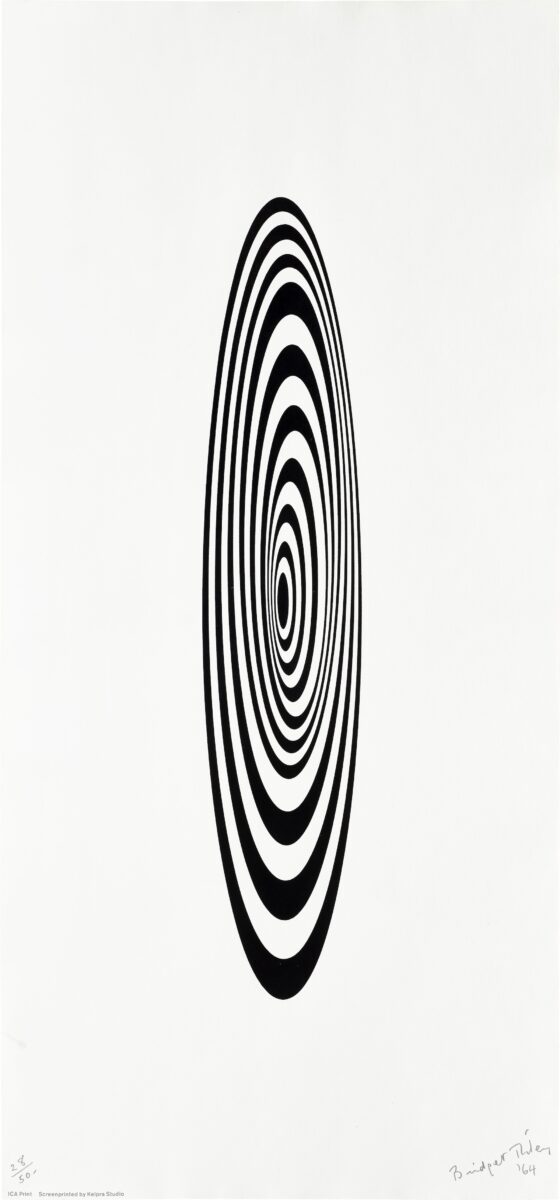
Bridget Riley’s Untitled (Oval Image) (1964) depicts ten undulating oval shapes receding into a central point. An excellent example of the artist’s early foray into printmaking, this piece was commissioned by the Institute of Contemporary Arts and marks a departure from post-war austerity, embracing new creative possibilities. Riley’s focus on black and white allowed her to explore the dynamic interplay of opposing tones, setting a precedent for optical illusion in art. Although she never formally studied optics, Riley’s work is central to the Op Art movement, known for its rhythmic patterns and visual effects. Untitled (Oval Image) exemplifies her investigation into creating movement and disrupting traditional printmaking, while also highlighting her groundbreaking role as a female artist in a male-dominated field.
Phillips Evening & Day Editions London Auction 6th – 7th June 2024
Keith Haring, Dog, 1986 Lot 119
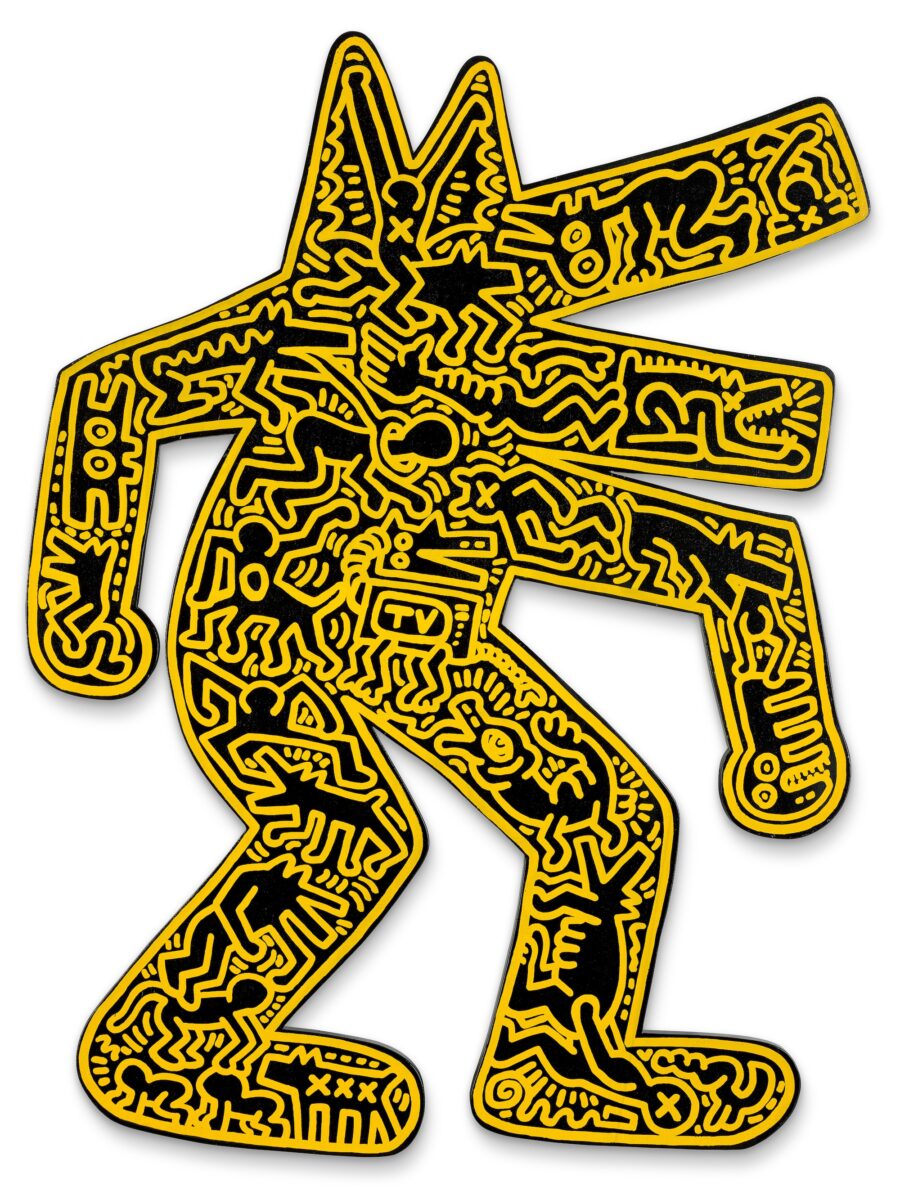
Keith Haring’s barking dog motif, first appearing in his early 1980s subway drawings, became an iconic symbol in his art, representing unity, love, and defiance against societal injustices like AIDS, racism, and homophobia. Using chalk on black-painted subway advertisements, Haring’s bold, energetic figures transformed public spaces into canvases for social commentary, and this unique trial proof prefaces a sculptural edition that further disseminates his important message of activism. The dog motif critiqued the pervasive homophobia of the 1980s, mirroring public anxieties and discriminatory campaigns targeting the gay community. Haring’s use of this symbol, influenced by the iconography of ancient Egypt’s Anubis, conveyed complex emotions and challenged authority. Through accessible public art, Haring fostered inclusivity and empowerment, making his work a powerful tool for social change.
Phillips, Evening & Day Editions London Auction 6th – 7th June 2024
Andy Warhol, Turtle (F. & S. 360A), 1985 Lot 134
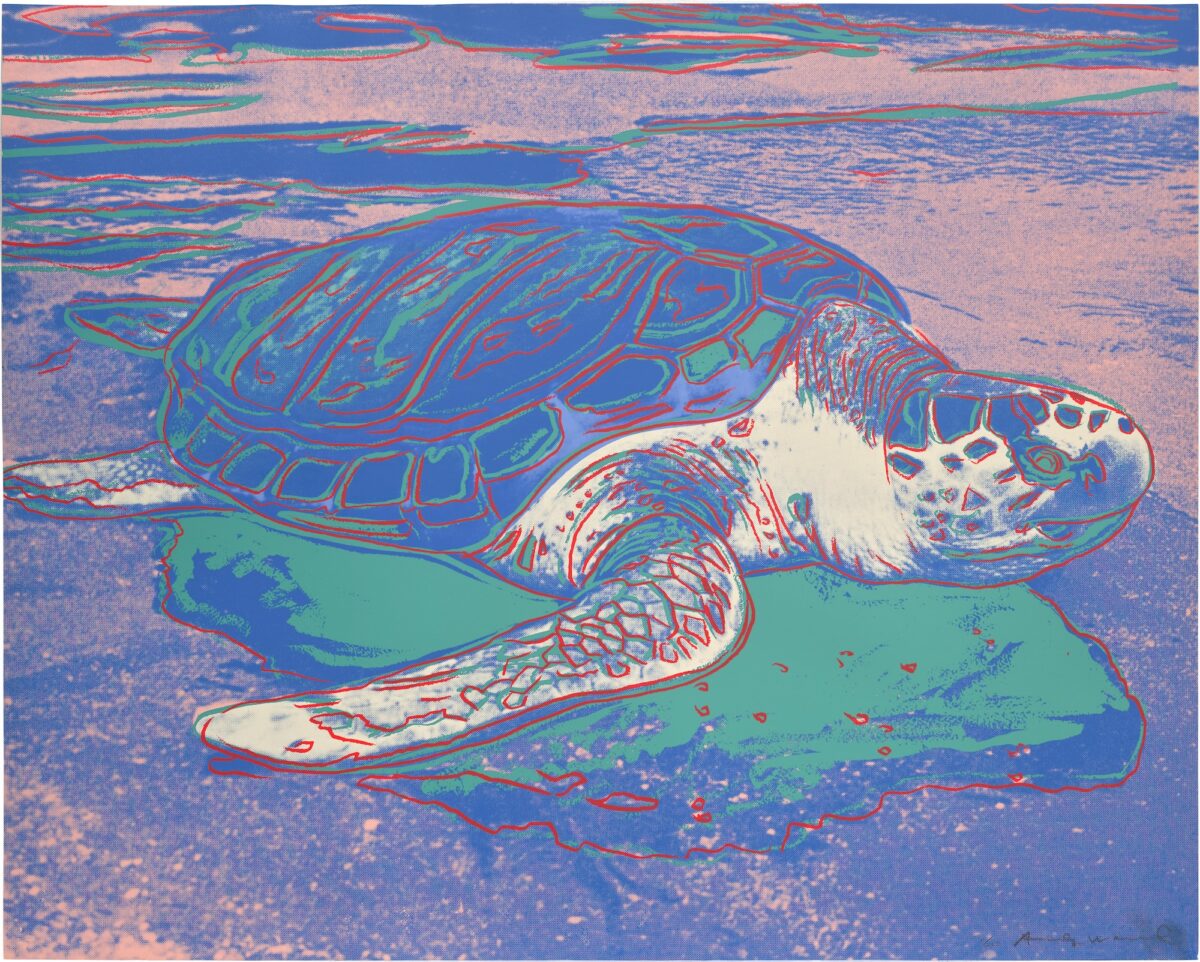
S. 79.9 x 99.9 cm (31 1/2 x 39 3/8 in.) Signed and numbered 6/250 in pencil (there were also 50 artist’s proofs), with the artist’s copyright inkstamp on the reverse, published by CBS, Inc., Los Angeles, to coincide with the 1985 film Turtle Diary directed by John Irvin and written by Harold Pinter, with an accompanying letter of provenance written by John Irvin, unframed. Estimate £40,000 – 60,000
CBS’s 1985 film Turtle Diary, written by Harold Pinter, explores themes of captivity and liberation through the story of two strangers who bond over their compassion for sea turtles at the London Zoo. United by a desire to free the turtles, they hatch a plan to release them into the ocean. The film stars Glenda Jackson, Ben Kingsley, and Michael Gambon, and features a promotional screenprint by Andy Warhol, who depicted the pivotal release scene in his vivid Pop Art style. Warhol gifted the screenprint to the film’s director, John Irvin, who was known for his diverse directorial work, including Tinker Tailor Soldier Spy and Dogs of War. Warhol’s love of nature, evident in his earlier Endangered Species series, shines through in Turtle, capturing the turtle’s majesty and themes of freedom from the film. The present work has remained in the collection of John Irvin since it was given to him by Warhol.
Phillips, Evening & Day Editions, London Auction 6th – 7th June 2024
Kehinde Wiley, Louis XVI, the Sun King, 2006 Lot 137
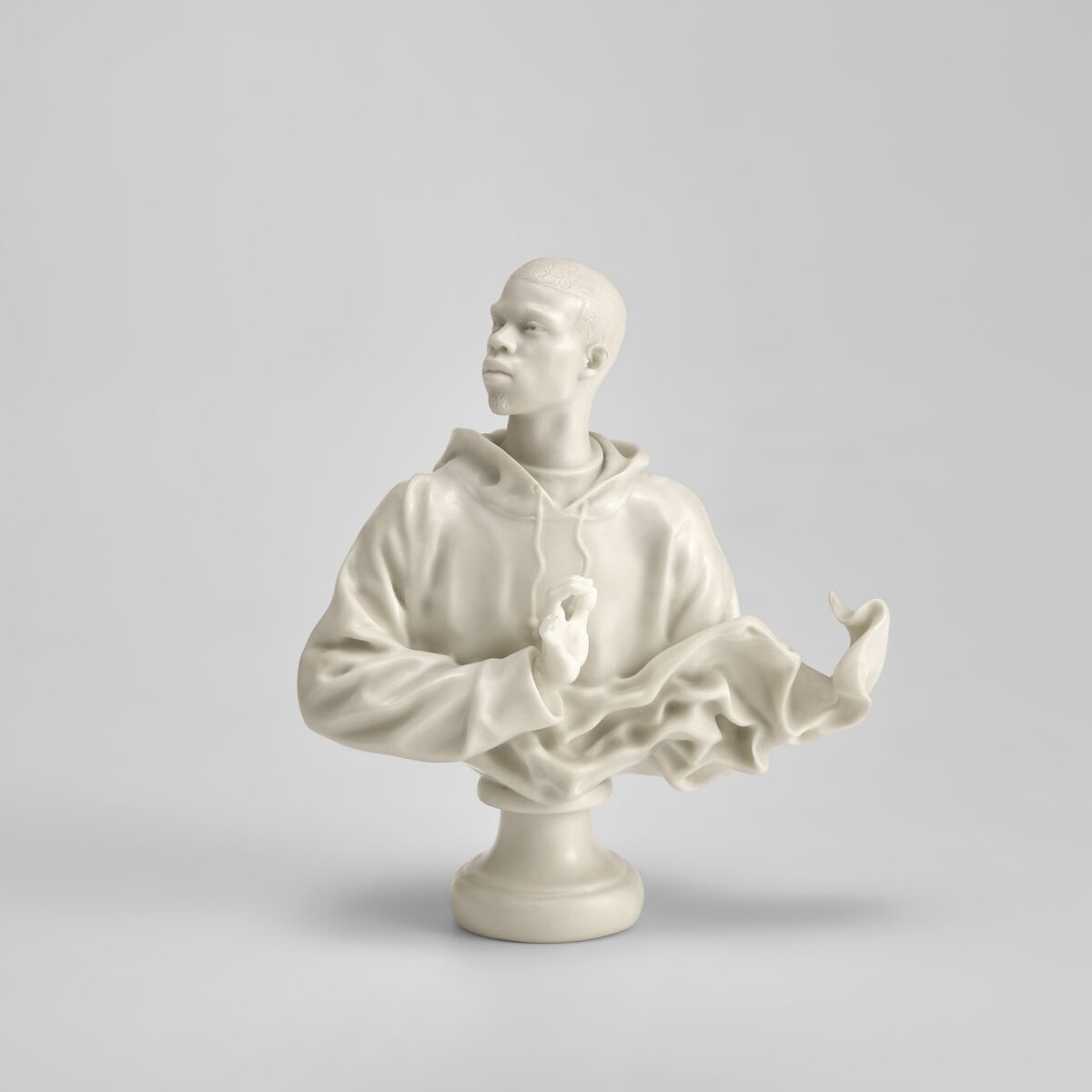
Kehinde Wiley’s work ingeniously appropriates grand European portraiture traditions to highlight black figures excluded from the art historical canon. Appropriating a sculptural category traditionally reserved for Western nobility and royalty, Wiley elevates black individuals to roles of status and grandeur immortalised in marble. In Louis XVI, The Sun King (2006), he reimagines a young black man in contemporary street attire as a seventeenth-century monarch. Influenced by Baroque master Bernini, the figure’s resolute composure and wind-swept hoodie convey confidence and splendour, coronating black men as kings and granting them deserved recognition.
Phillips, Evening & Day Editions, London Auction 6th – 7th June 2024
Gerhard Richter, Loo Paper (B. 83), 1994 Lot 149
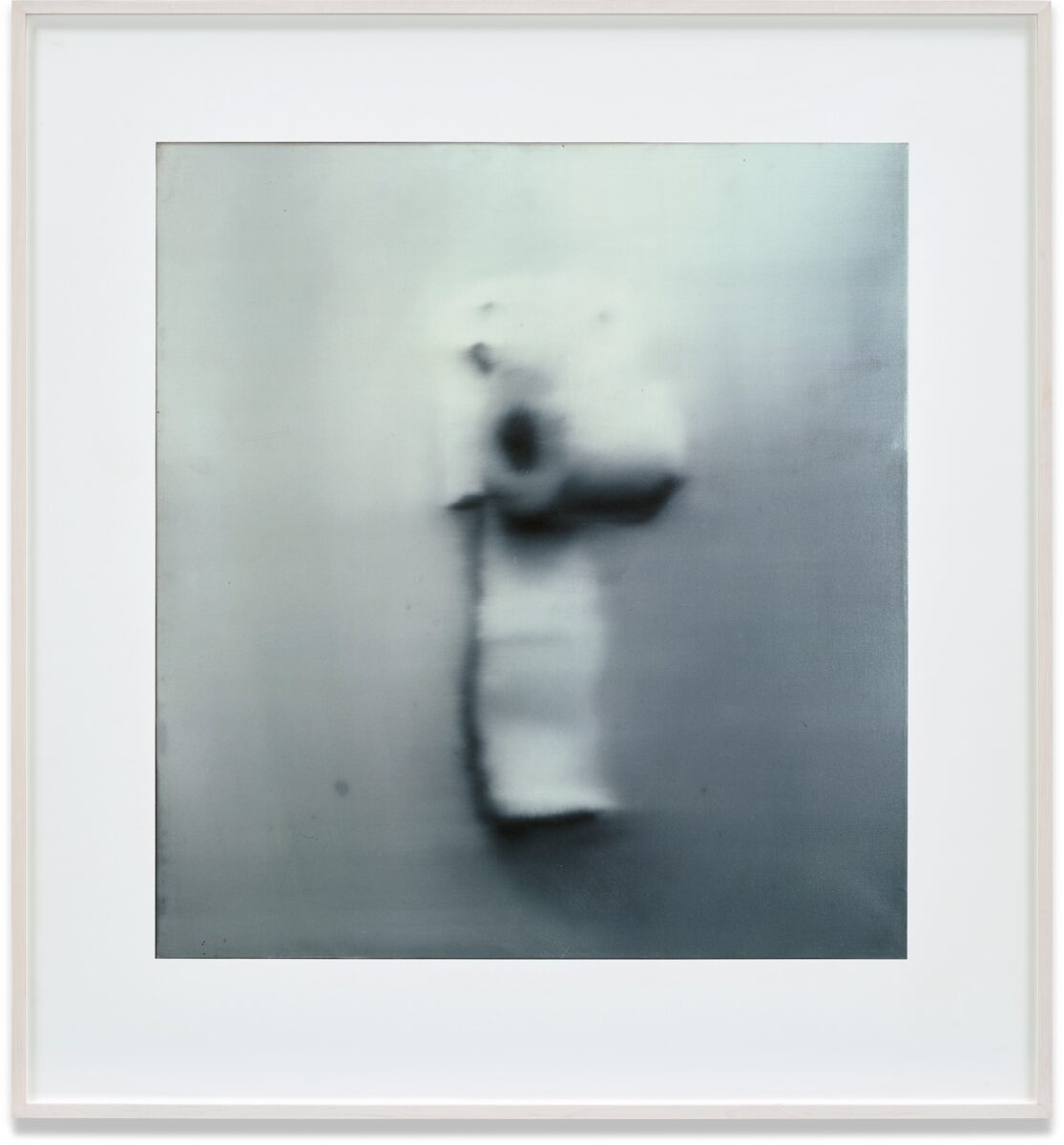
Gerhard Richter’s Loo Paper (1994) revisits a mundane object he first painted monochromatically in 1965, transforming it into a haunting cibachrome photograph. Despite his claims of randomly selecting subjects devoid of emotional connection, Richter’s persistent exploration of this everyday item suggests a deeper intention. Loo Paper nods to Marcel Duchamp’s readymades, particularly the iconic Fountain (1917), which challenged traditional notions of originality by presenting mass-produced objects as art. Inspired by Duchamp, Richter embraced this concept, using photographs of his own paintings to blur the lines between original and copy, and past and present, thus freeing painting from its mimetic constraints and exploring new artistic possibilities.
Phillips, Evening & Day Editions, London Auction 6th – 7th June 2024
Claes Oldenburg, Profiterole (G. 1457, see A. & P. 216-217), 1989 Lot 293
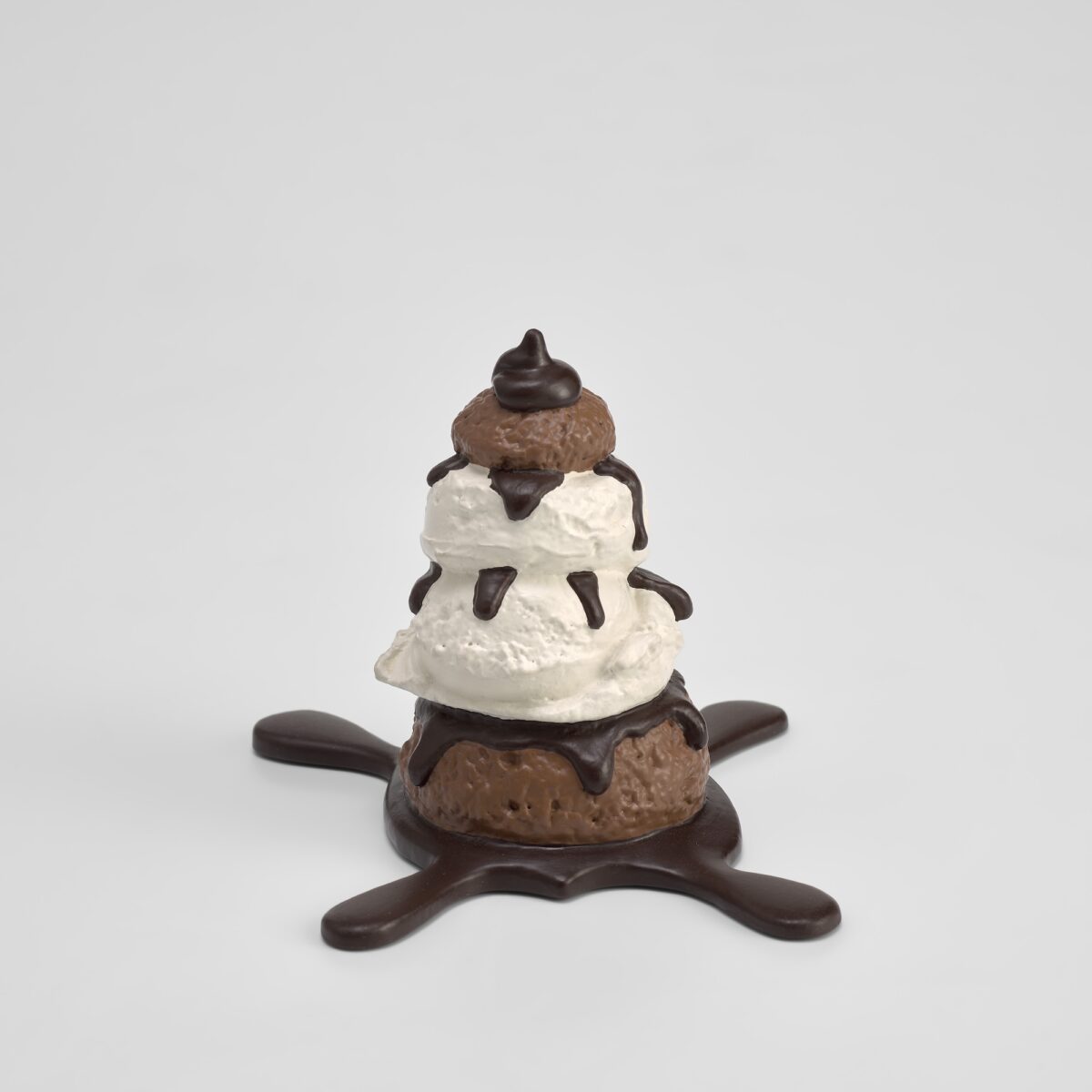
Claes Oldenburg, the Swedish-born American sculptor, is renowned for his playful and inventive reinterpretations of everyday objects, spanning monumental public installations to soft, pliable sculptures. A pioneer of the Pop Art movement, he began his exploration of soft sculpture with Sausage in 1957, leading to larger scale works like The Store (1961). The present work Profiterole (1989), crafted from cast aluminum, exemplifies his enduring creativity and his desire to subvert the expected neural pathways between sight and touch. Based in New York City, Oldenburg’s works are revered worldwide, featured in prestigious collections such as the National Gallery of Art in Washington, D.C., the Tate Gallery in London, and the Kunstmuseum Basel.
Phillips Evening & Day Editions London Auction 6th – 7th June 2024
